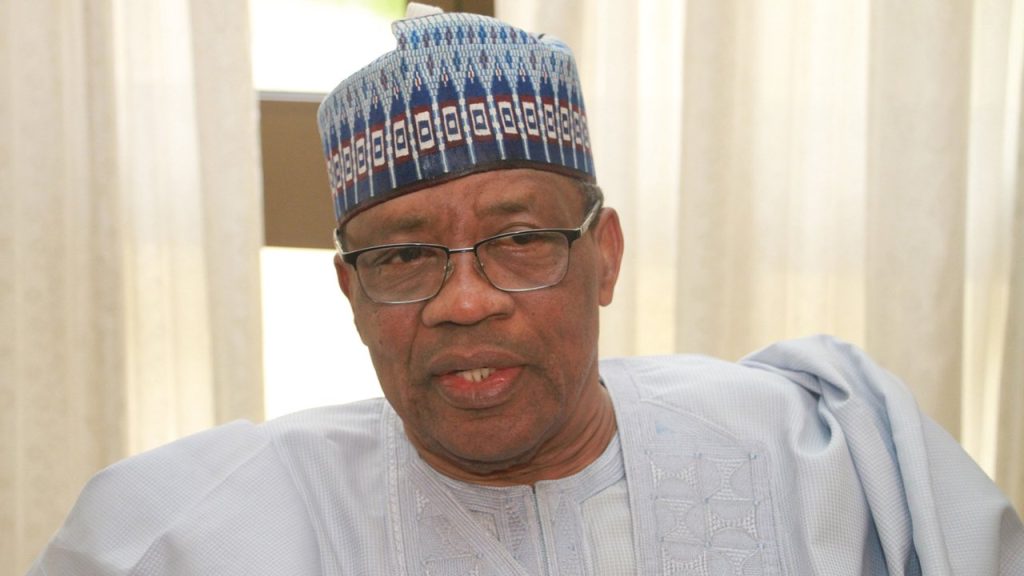Former military head of state Ibrahim Badamasi Babangida (IBB) claims that the Muhammadu Buhari regime was ousted because he was displeased with the latter’s policies and leadership style.
Babangida served as Buhari’s chief of staff during the December 31, 1983 coup that overthrew Shehu Shagari’s democratic administration.
In his autobiography, ‘A Journey In Service’, which was released in Abuja on Thursday, IBB said that the Buhari dictatorship issued “draconian” directives that resulted in the violation of citizens’ fundamental rights and liberties.
He stated that he considered Buhari and his deputy, Tunde Idiagbon, “were detrimental to the nation’s progress” and that his unhappiness “eventually led to its ouster in 1985”.
“After the military coup that replaced the civilian government of Shehu Shagari with a military regime led by Major General Muhammadu Buhari, Ibrahim Babangida assumed the role of Chief of Army Staff. However, he became increasingly dissatisfied with the Buhari government’s policies and leadership style, which he believed were detrimental to the nation’s progress. This dissatisfaction eventually led to its ouster in 1985, and he took office as the military President,” the book reads.
Recalling his voyage from Minna to Lagos on August 27, 1985, to assume office, Babangida stated that tensions had been building since the beginning of the year, necessitating a change in leadership.
The former Nigerian leader also stated that the coup that brought Buhari to power, which he termed as a “rescue mission,” had failed, with the military on the verge of separating.
“On that day, it became my lot to step into the saddle of national leadership on behalf of the Nigerian armed forces. The change in leadership had become necessary as a response to the worsening mood of the nation and growing concern about our future as a people. All through the previous day, as we flew from Minna and drove through Lagos towards Bonny Camp, I was deeply reflecting on how we as a nation got to this point and how and why I found myself at this juncture of fate,” IBB said in his book.
“By the beginning of 1985, the citizenry had become apprehensive about the future of our country. The atmosphere was precarious and fraught with ominous signs of clear and present danger. It was clear to the more discerning leadership of the armed forces that our initial rescue mission of 1983 had largely miscarried. We now stood the risk of having the armed forces split down the line because our rescue mission had largely derailed. If the armed forces imploded, the nation would go with it, and the end was just too frightening to contemplate.
“Divisions of opinion within the armed forces had come to replace the unanimity of purpose that informed the December 1983 change of government. In state affairs, the armed forces, as the only remaining institution of national cohesion, were becoming torn into factions; something needed to be done lest we lose the nation itself. My greatest fear was that division of opinion and views within the armed forces could lead to factionalisation in the military. If allowed to continue and gain root, grave dangers lay ahead.”
He claimed that Buhari and Idiagbon “posited a ‘holier than thou’ attitude”, separating themselves from what was meant to be a collective leadership.
He added that the duo caused the nation to become antagonistic towards the military.
“Fundamental rights and freedoms were being routinely infringed upon and abused. As a military administration, we were now presiding over a society that was primarily frightened of us,” he said.
“We were supposed to improve their lives and imbue the people with hope for a better future. Instead, we ruled the nation with a series of draconian decrees. An administration intended to reflect the collective will of the armed forces as a national institution came to be seen as the private personal autocracy of a stubborn few.
“Draconian decrees led to the abuse and severe limitation of basic freedoms as people were clamped into indefinite detention, most times for minor infractions. Punishment for crimes against the state had led to the pursuit of mechanical legalistic justice against the dictates of natural justice. As the Chief of Army Staff, I was under undue pressure from the rank and file to seek ways of reconnecting the government to society lest we lose the nation itself.
“This tense atmosphere culminated in the unanimous decision of a broad spectrum of senior and middle-level officers to change the nation’s leadership. The processes associated with this change were completed without bloodshed by midnight on August 26, 1985.”
Babangida stated Buhari was “too rigid and uncompromising in his attitudes to issues of national significance” in his 1985 maiden address to the nation, which is included in the book.
He additionally stated that Idiagbon “was similarly inclined in that respect” and stated that “a combination of these characteristics in the two most important persons holding the nation’s vital offices became impossible to contend with” .
Babangida stated that action needed to be made to rekindle Nigerians’ hopes, which led to the overthrow of the Buhari military dictatorship.
